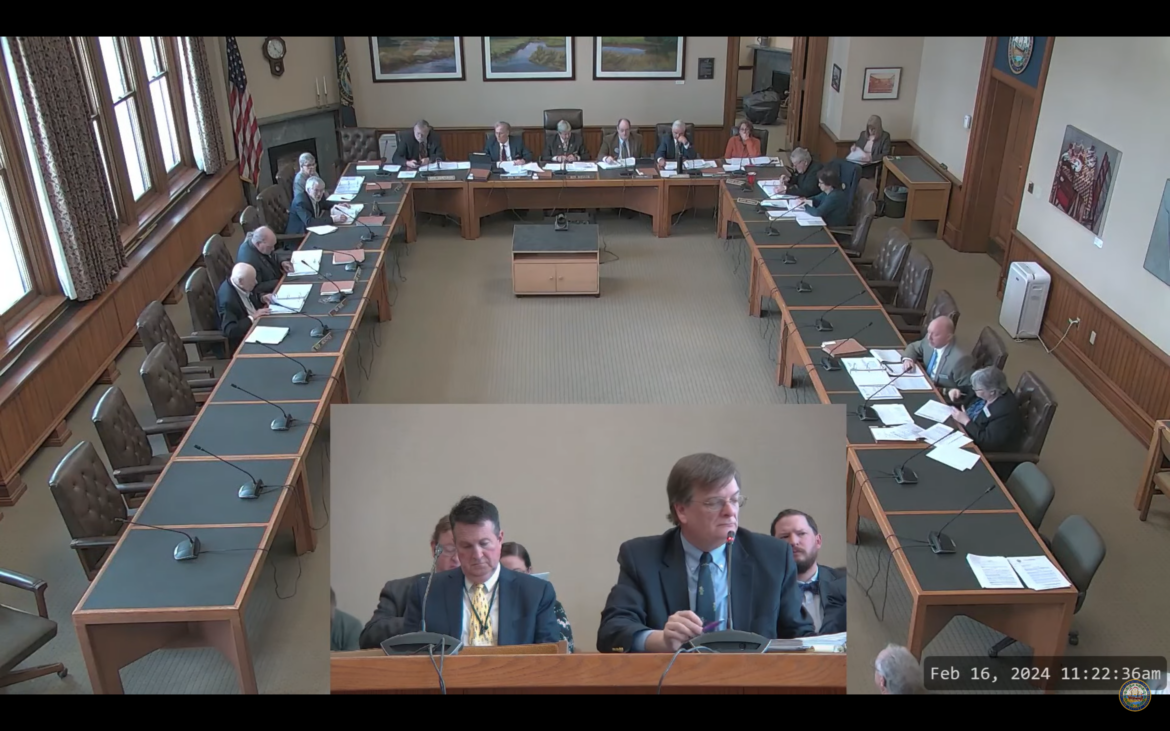By GARRY RAYNO, InDepthNH.org
CONCORD — State agencies are racing to spend the federal American Rescue Plan Act funds before the end of the year.
The Joint Legislative Fiscal Committee acted on requests to spend about $32 million of the funds that were reallocated from earlier projects where the money was not needed.
The Governor’s Office for Emergency Relief and Recovery sent the committee a spreadsheet showing that $38.7 million of the ARPA funds were available and needs to be allocated by July 1 and spent by Dec. 31.
The agency created to dispense federal COVID-19 related money had 11 requests before the committee to spend down the available funds, and the agency’s executive director, Taylor Caswell, said, noting there would be more requests at the committee’s next meeting in March as the agency finalizes remaining items and priorities.
One of the largest requests at Friday’s meeting was $6.5 million to overhaul the heating and air ventilation system in the Legislative Office Building where the majority of House and Senate Committees meet.
A study of the air quality done in the building during the busy legislative sessions from January to June found the minimum air quality standards were not being met.
The old system did not have “the heating/reheat coils needed to allow fresh air introduction into the building when temperatures fall below freezing, which requires that the existing air handling system be shut down during the winter months, resulting in minimum air quality standards not being met. It was also noted that outdoor air introduction minimums are not being met during the cooling season due to limited chiller capacity,” Charlie Arlinghaus, Administrative Services Commissioner, wrote to the committee.
A temporary solution was developed but it is not sustainable over the long term, he said, so the system will have to be replaced.
“Replacing the obsolete and inadequate system will increase overall efficiency, ensure that current air quality standards are satisfied, and provide resiliency in the event of any future health-safety crisis,” Arlinghaus said.
The total cost of the project is expected to be $8 million, with $2 million already approved for the project by the Executive Council and $500,000 to repair the attached parking garage.
The largest request is $8 million to help agricultural operations that experienced significant crop loss due to frosts, freezes, or other adverse weather-related events between Jan. 1 and Nov. 1 of 2023.
Agriculture Commissioner Shawn Jasper said he has been pushing for the money for some time to help farmers and others who lost crops to stay in business and cover some of their losses.
Rep. Peter Leishman, D-Peterborough, said he thought the losses were around $15 million, and Jasper said the intent never was to make everybody whole but to keep people from going out of business.
He said he expects the real number for the losses to be higher than that, probably around $32 million.
The money will allow farmers to buy seeds and fertilizer for the upcoming growing season, he said.
Jasper said his agency hopes to open the program by April 1 and if they get a request for $100,000, they will give the person $50,000 and then true up the rest after the program closes June 1.
For the farming businesses, it’s important to get the money out in the spring, Jasper said.
Broadband expansion to underserved areas will receive $5.3 million more after the committee’s actions. The state has already allocated $122 million in federal relief funds for broadband expansion.
Garry Rayno may be reached at garry.rayno@yahoo.com. Garry has been a reporter in New Hampshire for 40 years.






